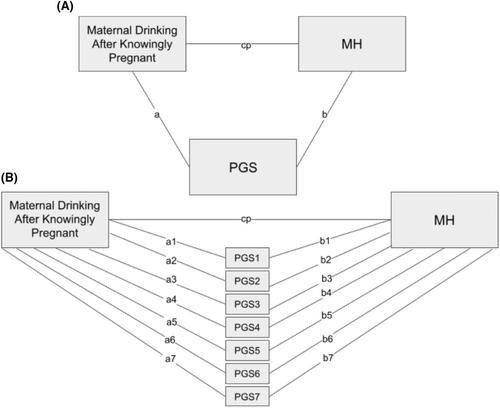Exploring the intersection of polygenic risk scores and prenatal alcohol exposure: Unraveling the mental health equation
Abstract
Background
Prenatal alcohol exposure poses significant risks to offspring mental health. However, the interplay between genetic predispositions to mental health disorders and prenatal alcohol exposure remains incompletely understood, limiting our ability to develop effective interventions for these conditions.
Methods
Data from the Adolescent Brain and Cognitive Development (ABCD) Study were analyzed to explore associations between polygenic risk scores (PRS) for mental disorders and maternal alcohol consumption during pregnancy. Logistic regression and structural equation modeling were utilized to assess these relationships.
Results
Maternal alcohol consumption after pregnancy awareness was significantly associated with an increased genetic risk for specific mental health disorders, particularly bipolar disorder in offspring. The relationship between maternal alcohol consumption and mental health outcomes was influenced by polygenic risk scores, with both externalizing and internalizing problems being affected.
Conclusions
Our findings highlight the specific interaction between increased genetic risk for bipolar disorder and prenatal alcohol exposure in shaping offspring mental health outcomes. The significant associations we observed underscore the importance of considering both polygenic risk scores and prenatal alcohol exposure when assessing mental health risks in children. These insights emphasize the need for targeted interventions that address both genetic predispositions and environmental exposures to better understand and mitigate the impact on offspring mental health.


 求助内容:
求助内容: 应助结果提醒方式:
应助结果提醒方式:


